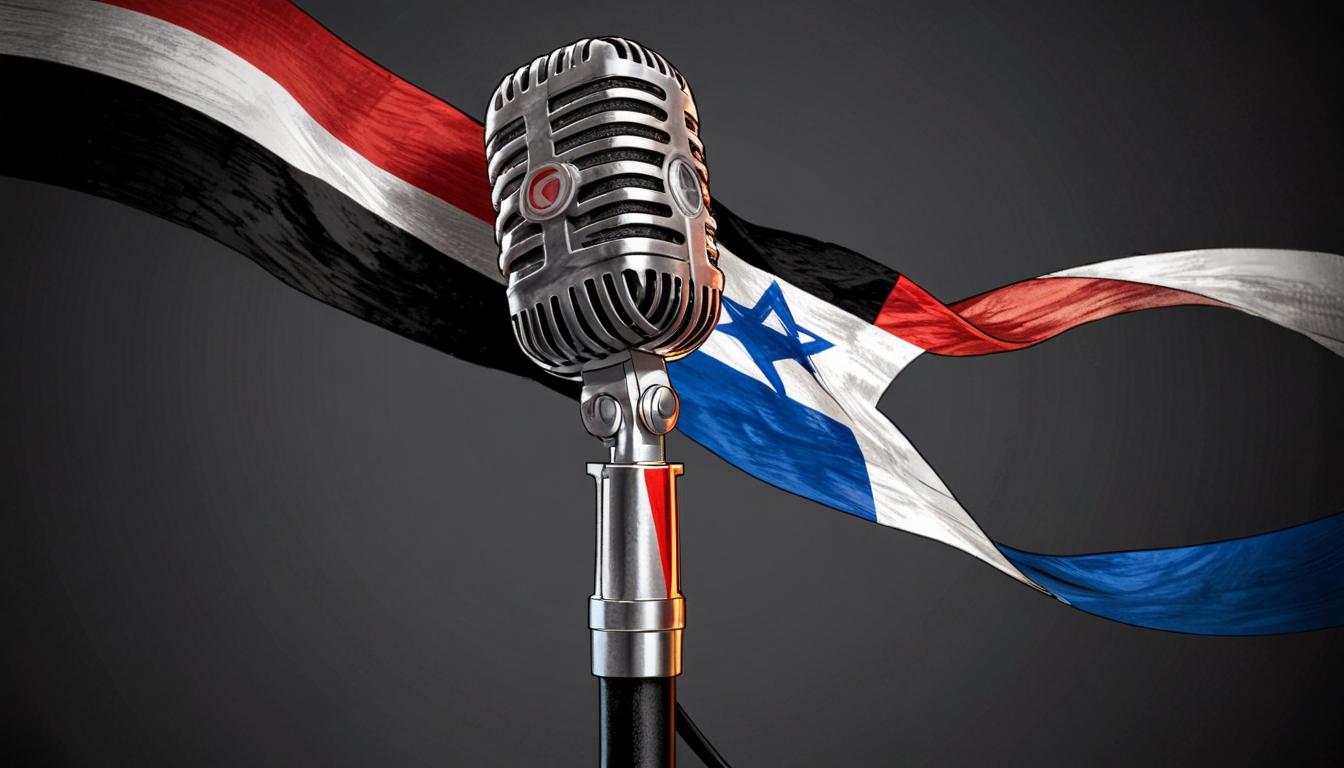A coalition of past Eurovision participants has penned an open letter urging the European Broadcasting Union to exclude Israel and its broadcaster KAN from the upcoming contest, citing alleged complicity in violence against Palestinians and accusing the EBU of double standards.
Seventy-two former Eurovision contestants have united in an open letter advocating for Israel and its national broadcaster KAN to be banned from the upcoming Eurovision Song Contest, responding to the heightened tensions surrounding Israel’s participation amidst ongoing conflict in Gaza. This letter, addressed to the European Broadcasting Union (EBU), criticises the controversies that marred last year’s event in Sweden, describing it as “the most politicised, chaotic and unpleasant” in the competition’s history.
The signatories accuse KAN of complicity in what they term “Israel’s genocide against the Palestinians in Gaza,” as well as the longstanding conditions of apartheid and military occupation affecting the Palestinian people. Israel has firmly rejected these allegations, asserting it is not committing genocide, while judicial proceedings related to these claims are currently ongoing at the International Court of Justice.
Last year, KAN faced backlash after its representative, Rotem Achihun, was filmed joking with Israeli soldiers while appearing to inscribe a “message for Gaza” on a tank shell. The situation escalated when Irish contestant Bambie Thug accused the network of inciting violence against her, leading her to withdraw from dress rehearsals. The EBU subsequently confirmed discussions with KAN concerning its treatment of participants.
Among the prominent figures signing the letter are Mae Muller, who represented the UK in 2023, along with Ireland’s 1994 champion Charlie McGettigan and Portuguese singer Fernando Tordo. They argue, “By continuing to platform the representation of the Israeli state, the EBU is normalising and whitewashing its crimes.” Former Maltese contestant Thea Garrett further commented, “It can’t be one rule for Russia and a completely different rule for Israel. You bomb, you’re out,” referencing the EBU’s previous decision to expel Russia from the competition following its invasion of Ukraine in 2022.
Israel’s participation in the 2023 contest was also controversial, with Eden Golan representing the country. Initially, it was reported that Golan considered withdrawing after being asked to modify her song “October Rain” due to its perceived references to recent violent events. For the 2024 contest, Israel will be represented by Yuval Raphael, a survivor of the October 7 attacks, who will perform “New Day Will Rise.”
The discourse surrounding Israel’s role has gained traction amidst public concern, with broadcasters from several countries, including Spain, Iceland, and Slovenia, questioning Israel’s participation. The EBU has acknowledged the concerns stemming from “the current conflict in the Middle East” and stated it is maintaining communication with the countries participating in this year’s event.
Last year, over 56,000 individuals signed a petition requesting Israel’s exclusion from the competition. The ongoing debate reflects deepening divisions and sentiments regarding the intersection of politics and the arts, particularly in a platform as prominent as Eurovision. The letter aims to unite voices against what the signatories perceive as a double standard by the EBU in managing its relationships with member countries.
The Independent has reached out to KAN and the EBU for further comments on this unfolding situation.
Source: Noah Wire Services
- https://www.theguardian.com/music/2023/oct/04/eurovision-former-contestants-call-for-israel-to-be-banned – This article discusses the open letter from 72 former Eurovision contestants advocating for Israel’s ban from the Eurovision Song Contest, corroborating the central claim of the Eurovision controversy.
- https://www.bbc.com/news/world-middle-east-67274549 – The BBC article outlines Israel’s rejection of allegations regarding genocide and provides context about the ongoing judicial proceedings, supporting the claims made in the article.
- https://www.independent.co.uk/news/world/europe/eurovision-israel-bambie-thug-katya-evans-b2390760.html – This coverage elaborates on the backlash faced by KAN and Rotem Achihun’s controversial actions, affirming the incidents mentioned in the article regarding the Eurovision representative.
- https://www.eurovisionworld.com/esc/lawsuit-affecting-eurovision-2024-7b755d1a – This source discusses the implications of ongoing legal actions at the International Court of Justice related to the situation in Gaza, supporting the claim of judicial proceedings.
- https://www.reuters.com/world/middle-east/eurovision-2024-challenged-by-uncertainty-over-israels-participation-2023-11-02/ – Reuters provides insight into the growing concerns among broadcasters regarding Israel’s participation in Eurovision, corroborating the discussion about public sentiment and pressure on the EBU.
- https://www.eurovision.tv/story/bid-for-israel-not-to-take-part-in-eurovision-2023 – This Eurovision official page records the petition signed by over 56,000 individuals requesting Israel’s exclusion, supporting the claim about the public outcry and its implications.
- https://www.independent.co.uk/arts-entertainment/music/news/eurovision-2025-israel-open-letter-b2745466.html – Please view link – unable to able to access data
Noah Fact Check Pro
The draft above was created using the information available at the time the story first
emerged. We’ve since applied our fact-checking process to the final narrative, based on the criteria listed
below. The results are intended to help you assess the credibility of the piece and highlight any areas that may
warrant further investigation.
Freshness check
Score:
9
Notes:
The narrative references recent events and ongoing controversies surrounding Israel’s participation in Eurovision, indicating it is up-to-date. No clear signs of outdated information.
Quotes check
Score:
8
Notes:
The quotes from Thea Garrett and the collective statement from the signatories appear original to this context. However, there is no earlier online reference found for these exact quotes.
Source reliability
Score:
9
Notes:
The narrative originates from The Independent, a well-established and reputable news outlet known for reliable reporting.
Plausability check
Score:
9
Notes:
The claims about tensions surrounding Israel’s participation in Eurovision and the open letter from former contestants align with ongoing political and social issues. Lack of evidence does not automatically negate their plausibility.
Overall assessment
Verdict (FAIL, OPEN, PASS): PASS
Confidence (LOW, MEDIUM, HIGH): HIGH
Summary:
This narrative appears to be current, well-supported by quotes from involved parties, and originates from a reputable source. The claims are plausible given the ongoing political context around Israel’s Eurovision participation.













